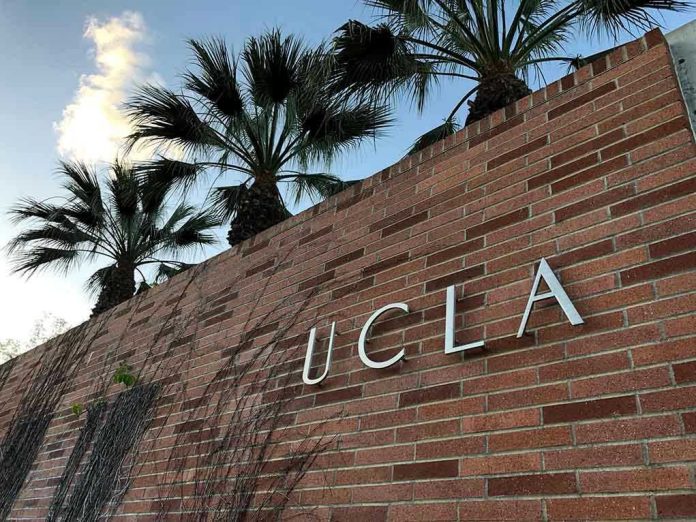
UCLA’s massive financial fallout marks a pivotal moment in the fight against campus antisemitism, raising crucial questions about the future of academic freedom and federal intervention.
At a Glance
- The U.S. Department of Justice found UCLA violated Jewish students’ civil rights.
- The university faces a loss of over $2.6 billion in federal funding.
- UCLA’s deliberate indifference created a hostile environment for Jewish students.
- New policies are being implemented to combat antisemitism on campus.
UCLA’s Reckoning with Federal Enforcement
The U.S. Department of Justice has made a landmark decision, finding UCLA in violation of federal civil rights law for failing to address antisemitism, leaving Jewish students vulnerable. This ruling comes with a heavy price tag—UCLA is set to lose over $2.6 billion in federal funding. Attorney General Pam Bondi didn’t mince words, stating that UCLA will “pay a heavy price for putting Jewish Americans at risk.”
"This disgusting breach of civil rights against students will not stand: DOJ will force UCLA to pay a heavy price for putting Jewish Americans at risk and continue our ongoing investigations into other campuses in the UC system.” –@AGPamBondi https://t.co/t7GiKFW8Bh
— U.S. Department of Justice (@TheJusticeDept) July 29, 2025
This unprecedented federal intervention follows a series of incidents on campus where Jewish students faced exclusion and discrimination, particularly amid pro-Palestinian protests. The DOJ’s findings highlight the university’s deliberate indifference, violating both the Equal Protection Clause and Title VI of the Civil Rights Act. These legal actions underscore a broader federal crackdown on antisemitism in higher education.
The Fallout and Financial Implications
The financial implications for UCLA are staggering. With a clawback of federal research funding, totaling over $2.6 billion, the university’s academic and research programs face significant challenges. This financial blow not only affects the university’s reputation but also its ability to attract and retain top talent and resources. UCLA has agreed to settle the lawsuit by paying over $6 million and implementing new policies to combat antisemitism.
These developments echo similar actions taken against other institutions like Columbia University and Barnard College, signaling a broader trend of federal oversight in higher education. The settlements highlight the significant leverage the federal government holds over public universities through control of research funding.
Campus Activism and Academic Freedom
The case at UCLA has opened a nationwide debate on the boundaries between protest and discrimination, as well as the definition of antisemitism. Critics argue that equating criticism of Israel with antisemitism could threaten academic freedom and stifle critical discourse on college campuses. However, Jewish student groups and civil rights advocates maintain that robust enforcement of civil rights laws is necessary to protect vulnerable student populations from discrimination and exclusion.
The university’s leadership, under Chancellor Julio Frenk, is now tasked with balancing campus safety, free speech, and federal compliance. Frenk, who has personal ties to the history of antisemitism, has initiated new policies aimed at addressing these issues, but the road ahead remains fraught with challenges.
Broader Implications for Higher Education
This case sets a precedent for future civil rights enforcement in higher education. Universities across the nation may now feel compelled to revise their protest policies and enhance efforts to combat antisemitism, fearing similar financial penalties. Legal and compliance costs are likely to rise as institutions work to avoid the pitfalls that ensnared UCLA.
The DOJ’s actions have intensified the political polarization over federal intervention in university affairs, raising questions about the future of academic freedom and the role of government in shaping educational environments. As universities grapple with these new realities, the balance between protecting civil rights and maintaining academic freedom will continue to be a contentious issue.
Sources:
U.S. Department of Justice Press Release







